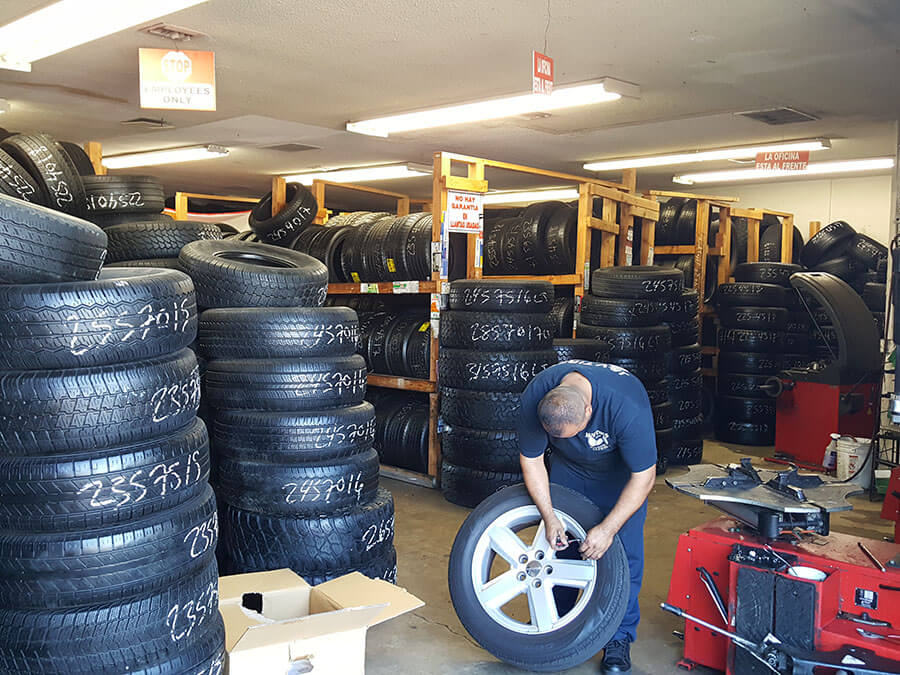Costs Tires Morris IL: Quality Products for All Makes and Models
Costs Tires Morris IL: Quality Products for All Makes and Models
Blog Article
Tire Service: The Influence of Climate Condition
When it pertains to making certain ideal performance and safety when traveling, recognizing the influence of weather condition conditions on tire service is vital. From scorching warm to icy roads, each climate aspect can dramatically influence tire performance and general driving experience. By diving right into the effects of differing weather on tires, drivers can obtain useful insights that might enhance their automobile's efficiency and durability. In this discussion, we will certainly check out the elaborate partnership between weather and tire solution, dropping light on the significance of weather-specific tire upkeep methods and factors to consider.
Warmth and Tire Performance
When exposed to high temperature levels, tires experience changes in performance that can considerably impact car safety and security and handling. The heat produced from long term driving or warm climate problems causes the tire rubber to soften, resulting in reduced step life and raised wear. As the rubber comes to be softer, the tire's grip when traveling decreases, influencing braking ranges and overall traction. In severe cases, excessive warmth can even create tire blowouts, presenting a severe safety threat to the lorry and its passengers.
Moreover, high temperature levels can speed up the process of tire aging, triggering the rubber to weaken a lot more rapidly. To mitigate the results of heat on tire efficiency, drivers should routinely check their tire pressure, rotate tires to guarantee also use, and check for any kind of signs of damage.
Winter Results
Winter conditions can have a significant effect on tire efficiency and security. As temperature levels decrease, tire rubber can set, resulting in reduced grip on icy or snow-covered roadways. In cool weather, tires might additionally lose atmospheric pressure a lot more swiftly, which can affect taking care of and fuel performance. Furthermore, cold temperatures can create tire sidewalls to stiffen, enhancing the threat of damage from splits or various other road risks.
To mitigate the impacts of cool climate on tires, it is essential to regularly examine tire pressure and inflate them to the manufacturer's suggested levels. Utilizing winter or all-season tires made for winter problems can also boost grip and hold on icy or snowy roadways - morris tire and alignment. Correct tire upkeep, consisting of normal inspections for wear and damages, ends up being much more important throughout colder months to make certain optimal performance and safety
Rainy Conditions Influence
Tires with worn-out treads are a lot more vulnerable to hydroplaning, where a layer of water constructs up in between the roadway and the tire surface, leading to loss of grip. To battle this, vehicle drivers ought to regularly evaluate their tires for appropriate tread depth and think about spending in tires particularly created for damp conditions.

Snow and Tire Safety
Snow-covered roads pose one-of-a-kind obstacles for vehicle drivers, stressing the relevance of correct tire choice and maintenance. When driving in snowy problems, having the ideal tires can make a significant distinction in safety and security and efficiency. Winter season tires are designed with special rubber substances and step patterns to offer better grip on snow and ice compared to all-season tires. The deeper footsteps and sipes of wintertime tires help grasp the roadway much better, decreasing the threat of sliding and sliding.
In addition to utilizing winter tires, it is important to ensure they are appropriately inflated. Winter can cause tire stress to drop, influencing traction and handling (morris tire and alignment). Routinely examining and preserving the proper tire pressure is crucial for optimal performance in snowy problems

Weather-Related Tire Maintenance
When faced with various weather, appropriate tire maintenance becomes a crucial aspect of car safety and performance. Weather-related tire upkeep encompasses a series of methods focused on making sure optimal tire feature and long life in different climate circumstances. One crucial element of weather-related tire maintenance is tire stress policy. Changing temperatures can cause tire stress to vary, influencing traction and fuel efficiency. On a regular basis changing and examining tire stress according to producer suggestions is important for secure great post to read driving in altering weather. In addition, tire walk depth plays a substantial role in handling various weather components. Tires with sufficient step depth offer much better grasp on wet or icy roadways, decreasing the threat of hydroplaning or skidding. Evaluating tire tread consistently and replacing tires when walk wear reaches a particular depth is essential for maintaining traction and security in adverse climate. By focusing on weather-related tire maintenance, chauffeurs can boost security, improve car performance, and prolong the lifespan of their tires.
Verdict
Finally, weather have a considerable influence on tire performance and security. From warmth influencing tire stress and use to chilly weather condition minimizing grip, it is necessary to take into consideration the climate when preserving and utilizing tires. Rainy problems can lower hold and lead to hydroplaning, while snow can enhance the threat click reference of accidents if tires are not appropriately equipped. Weather-related tire maintenance is important in ensuring ideal performance and safety and security on the roadways.
In this discussion, we will check out the intricate partnership between climate conditions and tire solution, losing light on the value of weather-specific tire maintenance methods and considerations.

Report this page